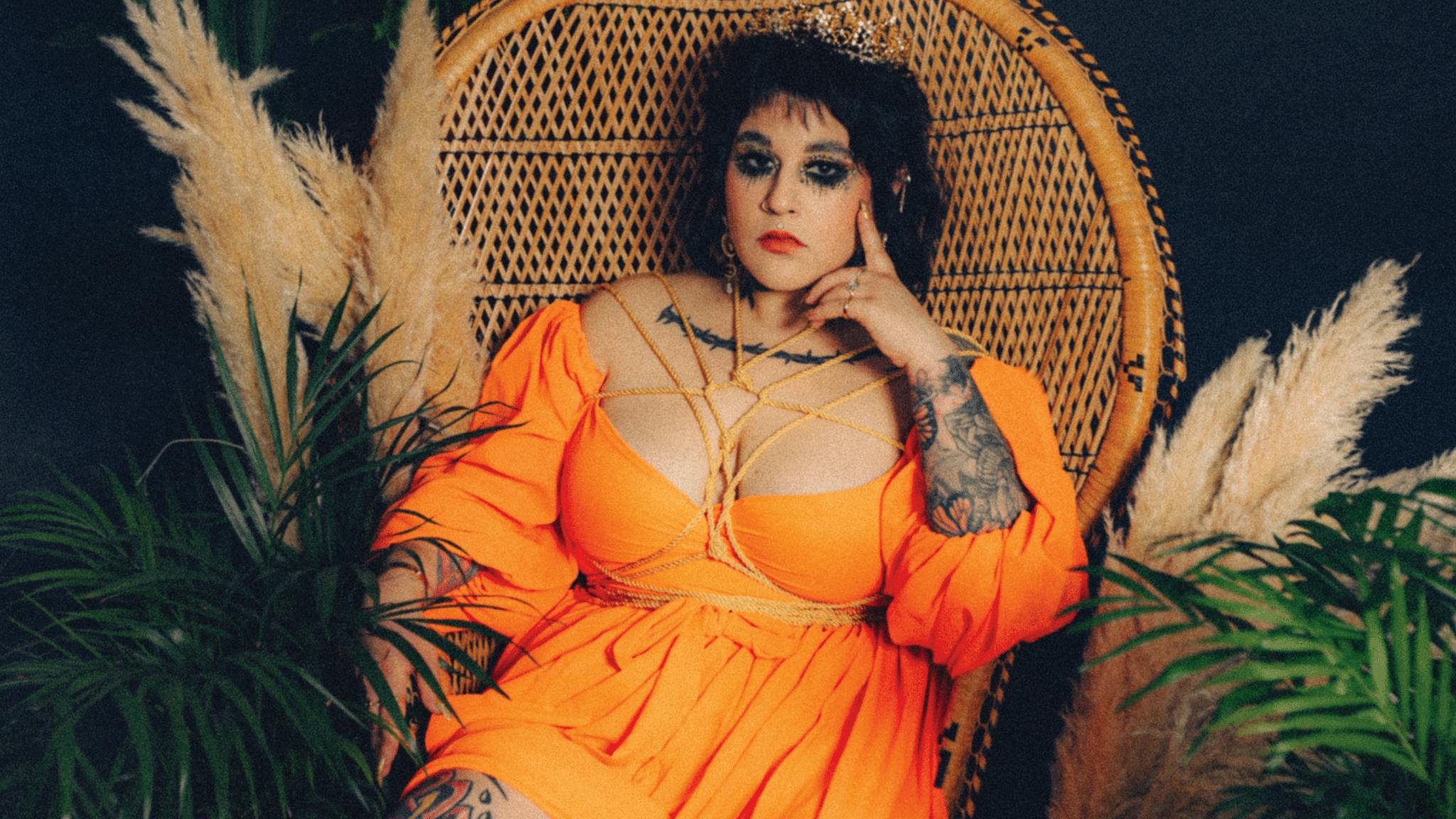The first time this writer encountered Djamila, I was scared of her. Opening for Employed To Serve at a tiny show in Basingstoke six years ago, she was a whirl of vehement energy, screaming with an incandescent intensity, physically shoving members of the audience out of the way to get to where she wanted to be, without any sign that it was some sort of rough-and-tumble fun. When we tell her this, she laughs.
“More often than not, it’s men who will say that they’re intimidated by me, or scared of me. To which I’ve always said, ‘Good, as you should be,’” she grins. “I don’t know, I just find the idea of someone being scared of me really funny.”
Djamila says she’s mellower these days, and truly, even if she clearly doesn’t suffer fools, she’s friendly, funny and full of banter. But back then, she agrees she wasn’t too cordial onstage.
“At those early shows, I felt like there was a need to be hyper-aggressive,” she explains. “A lot of that anger was directed at the audience. I felt like I had something to prove. A lot of the people in those audiences weren’t very nice to me, for years, so I felt like I had to push back.”
This was a skill already learned as a kid. Growing up with two brothers meant she quickly learned to stick up for herself and not take any shit off anyone.
“I love my brothers so much, but it was punch or be punched,” she laughs. “And growing up in Holloway, you end up being a very specific type of person. You learn how to look after yourself.”
Despite this, Djamila remembers being a “very quiet” child. As a child, illness saw her at London’s Great Ormond Street Hospital, one effect of which was that she became “really insular”, spending the long stretches away from other kids teaching herself to read. As she grew older, it was her siblings who introduced her to music, bands like Deftones and Faith No More. “I was insufferable because I knew about bands like that,” she says. “We’d have non-uniform day at school and my friends would be in Good Charlotte and Slipknot shirts, and I’d be there in one of my brother’s Deftones shirts being like, ‘Fuck you.’”
After seeing Slayer and Slipknot on The Unholy Alliance Tour, she soon graduated into London’s hardcore scene, and music became “more about local shows and supporting your scene and those values that are really important to grassroots music”.
Even becoming something of a face around gigs (and having done turns in a couple of bands while at university that she succinctly calls “toilet”), when Djamila first went to meet the other members of what would become Ithaca in 2012, she didn’t tell anyone what she was going to do.
“I was so self-conscious about it. I just thought people would laugh at me,” she admits. “I thought they wouldn’t take it seriously. It wasn’t until after we’d had a couple of practices that I felt confident enough to tell people what I was doing.”
Ithaca played their first show at an all-dayer at London’s New Cross Inn, at which the friends who’d come out early had to watch from picnic tables in the pub. Djamila says this was also “toilet”, but they didn’t care. Especially not their singer.
“I had spent a long time being in and around people in the hardcore scene. At that time, I was very much just a girlfriend. And I hated that,” she recalls. “I absolutely hated it. What I really wanted to do was be in a band.”
Things weren’t particularly easy, mind. Not looking like other hardcore bands – “especially not me, a small, tubby Arab woman” – and with a more chaotic sense of musicality, Djamila describes how the early years were marked by “derision”.
“We got so much shit,” she says. “Not just from the audience, but the bands we played with. People were really shitty to us, they had no time for us. We got a lot of sarcasm, and backhanded compliments, all the ‘You’re good for a girl’ stuff. It was so boring and so tiring. Because I was younger, I responded to that in a very different way than I would now. I pushed really, really hard to try to get myself taken seriously. I had to. I didn’t really have a choice, and didn’t really have very many people cheering me on.”
